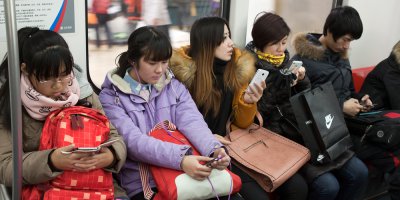
Chinese social media influencers drive more sales than their western counterparts. Source: Shutterstock
Why influencer marketing is a $9b industry in China
INFLUENCER marketing has taken the world by storm in recent times and brands realize the power of engaging with customers through influencers as part of their digital marketing campaigns.
Generally, influencers are people who shot to fame one way or another, allowing them to amass a substantial number of followers on social media platforms such as Instagram, Facebook, and Twitter.
But in China, the influencer marketing industry is in a whole different league altogether.
Chinese influencers otherwise known as Key Opinion Leaders (KOLs) are made up of columnists, socialites, photoblogger, and video producer. They use local platforms such as Weibo, WeChat, Douban, and Douyin and act as advocates for brands they choose to work with.
The power of KOLs
One of China’s most prominent KOLs in the sphere of fashion is Becky Li. She partnered with American fashion house Rebecca Minkoff to promote a limited edition purse three years ago, after quitting her day job as a reporter to turn to full-time blogging.
In a subsequent partnership with British auto-maker Mini, Li helped the brand sell 100 of the brand’s special edition vehicle to her follower in five minutes, and has been a regular feature at some of the world biggest fashion shows since.
And last Lunar New Year, mobile payment vendor WeChat Pay got her onboard as their Chief Experience Officer for their overseas payments unit.
She now employs around 70 staff to run her company and successfully incubated three other lifestyle-related WeChat profiles. Late last year, Li also launched her clothing brand called Becky’s Fantasy, which is also the name of her public WeChat account.
Meanwhile, another Chinese KOL, Zhang Dayi also launched her own fashion and beauty brand on the e-commerce platform Taobao and her team monitors customer’s reception towards certain products via social media engagements.
Zhang, who managed to rake in US$25 million in sales on Single’s Day, is a product of one of China’s earliest and most prolific influencer incubators, Ruhnn.
Rhunn, which started as an online clothing store began hiring bloggers and helped them foster a massive fanbase and followers.
The business model was runaway success to the point that e-commerce giant Alibaba invested in the company, and the influencer industry as a whole grew to about US$8.6 billion, according to one estimate.
Although KOLs or influencer marketing is made possible by the prevalence of social media, success comes to those that keep the focus on the consumers.
Brands should always prioritize influencers that truly believe in the product that they’re promoting because in the digital era, authenticity goes a long way.
READ MORE
- 3 Steps to Successfully Automate Copilot for Microsoft 365 Implementation
- Trustworthy AI – the Promise of Enterprise-Friendly Generative Machine Learning with Dell and NVIDIA
- Strategies for Democratizing GenAI
- The criticality of endpoint management in cybersecurity and operations
- Ethical AI: The renewed importance of safeguarding data and customer privacy in Generative AI applications




